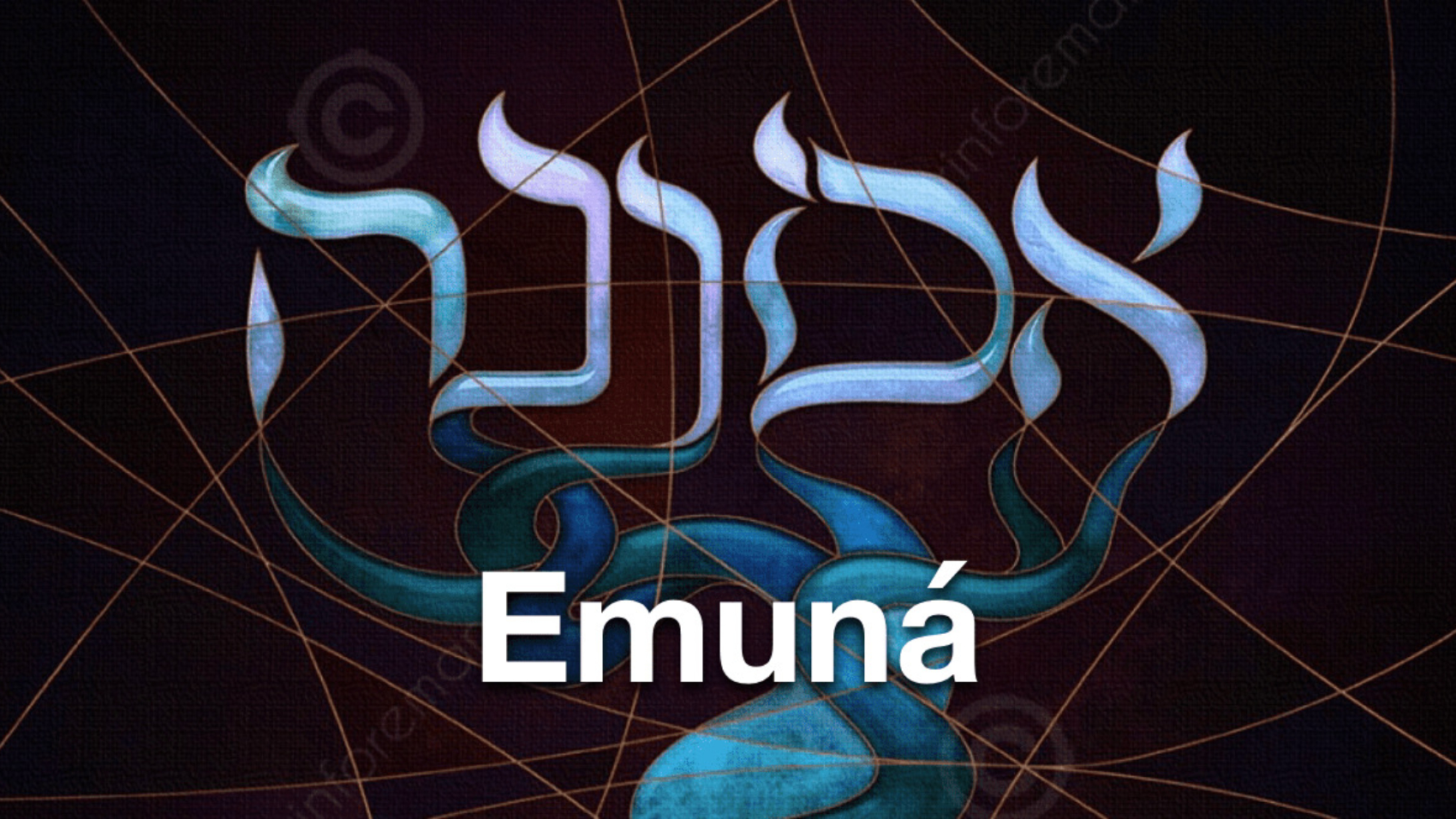Emuna, our faith, as well as truth, is what we rely on. That’s why this word has the definition of being a support.
What is faith? Did you ever try to define it? If we can’t explain what it is, can we claim to possess it?
In the dictionary, this word is associated with belief and hope, and while this is true in Hebrew as well, the meaning of the word emuna (אֶמוּנָה) is much more comprehensive.
First, we must understand that the noun emuna comes from a verb. This verb is amán (אָמַן). Amán means to believe, but it also has various physical or practical implications, as we will see below.
And he believed in Yehovah, and He accounted it to him for righteousness.
Genesis 15:6
The verb “believed” (הֶאֱמִן) here comes from the verb amán (אָמַן). And in the context of Abraham’s story, we see how he was a man of action and received this visitation from Yehovah after he had already left his homeland. His emuna led him to take action.
Emuna is related to truth:
A faithful (emunim) witness does not lie, but a false witness will utter lies. Proverbs 14:5
Open the gates, that the righteous nation which keeps the truth (emunim) may enter in. Isaiah 26:2
In both cases, the word related to truth comes from the word emuna.
Emuna, our faith, as well as truth, is what we rely on. That’s why this word has the definition of being a support. Something that holds up another thing. A faithful person (who has faith) in Hebrew is ne’emán; a person who has a firm support base.
Perhaps one of the most impressive figures that this word can teach us is in its relation to a mother; em (אֵם). A mother is the one who holds and sustains the baby. This word is embedded within the word emuná and the verb amán. There is another similar word, omén (for a man) or omenet (for a woman), which comes from the word em (mother), but it does not necessarily refer to a biological mother but to someone who cares for and sustains a baby. In the Spanish of the Reina Valera translation, it can be translated as a nanny.
Then Naomi took the child, and laid it in her bosom, and became his nurse (omenet). Ruth 4:16
Or in the following case, where Moses complains to Yehovah in the desert about the children of Israel:
Did I conceive all these people? Did I beget them, that You should say to me, ‘Carry them in your bosom, as a guardian (omén) carries a nursing child, to the land which You swore to their fathers?’
All these different concepts converge at the root of the word emuná. Faith requires support, and it also requires action. A faithful person is a steadfast person.
Perhaps some of these things help put into perspective the words of Ya’akov (James) when he wrote, Show me your faith (emuná) without your works, and I will show you my faith by my works.

